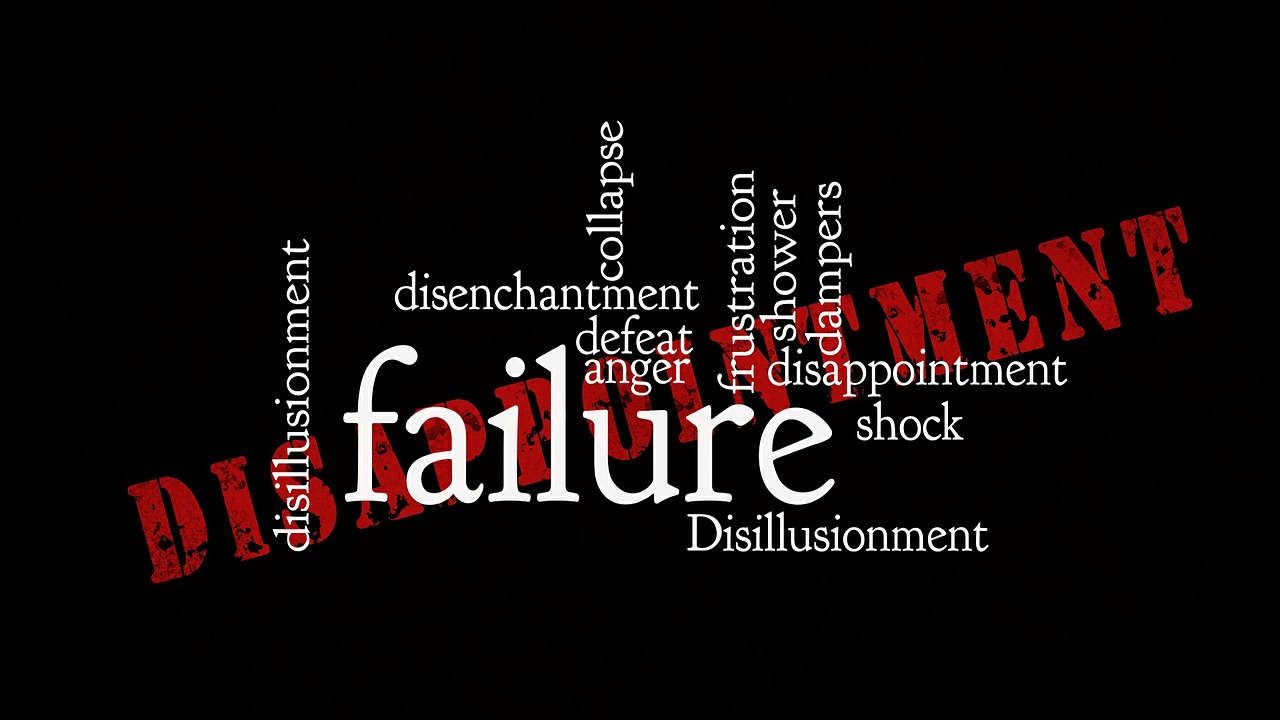Author’s Note: It would be in poor taste not to acknowledge my huge privileges in life before saying the things I’m about to say. I’m white, cisgender. Though I grew up economically disadvantaged, my father got it together by my teenage years and brought me to middle class suburbia for high school which created another set of wild and varied life experiences for another discussion another time. I inherited money because of my privilege, the unions, and because my grandparents were depression-era savers. Many suffered and continue to suffer much worse than I did as a result of not only the financial collapse of 2008 but because of systemic injustice built into our society. Those are their stories. This is only mine.
Content and Trigger Warnings: Discussion of financial instability and insecurity, debt, recession, job loss, C-PTSD, misdiagnosis, brief mention of sexual assault and domestic violence (nondescriptive).
I write about my experiences with my creative writing workshop a lot. Here. On Twitter. I crack jokes and complain about lit fic. I talk openly about how the pursuit of writing The Next Great American Novel broke me.
That’s a simplistic view of things, truth be told.
What really broke me was the 2008 financial crash.

Which started in 2007. Arguably before then, but for this post let’s start in 2007.
In February of 2007, I celebrated my 19th birthday as the US housing bubble burst. I was a freshman at UNC Chapel Hill, trying to find myself. Partying too much and sleeping at weird hours. Taking a Milton class I loved, learning how the devil is the best character, and making friends with a girl whose friendship I cherish to this day. Dating a frat boy who abused me while I crushed on a girl so beautiful she terrified me, then a boy who would later become my first real love.
I had no idea what a subprime lender was. Or that in April the largest one in the US, New Century Financial Corporation, would file for bankruptcy, starting an economic slide that would change the course of hundreds of millions of lives across the world. Including mine.
In September of 2008, the US government announced it would seize control of Fannie Mae and Freddie Mac. I was 20 now, a junior fully emeshed in the competitive creative writing program that had brought me to UNC in the first place. I’d put away fantasy, trading it for lit fic. I’d also put away partying, trading it for studying. Shakespeare, Milton, Chekhov, Faulkner, Woolf, Hemingway, Joyce, Hurston, Marquez. Quotes about shitty first drafts and butts in seats and killing darlings written in caligrophy pens wallpapered my dorm room. My sights were set on the Iowa Writers’ Workshop at the University of Iowa. The most prestigious MFA in the country. That spring, at UNC, I would be eligible to apply for advanced fiction writing. Getting in was one leap away from my year-long senior honors thesis and the recommendations and portfolio I needed for Iowa.
Dreams have only one owner at a time. That’s why dreamers are lonely.
William Faulkner
The financial crisis made its way to campus in the way of chatter about sudent loans. Freddie Mae and Fannie Mac held not only mortgages, but student loans.
I was one of the fortunate few who didn’t have student loans. Scholarships had paid for my first year at UNC, a trust fund left to me by my deceased paternal grandmother was paying for the rest, with money left for grad school.
A trust fund invested in the stock market.

A week after Fannie Mae and Freddie Mac, Lehman Brothers went bankrupt. The next day, AIG had to be bailed out. The snowball picked up speed, barreling down the mountain. Many had already been hurt. Many more were soon to be in the path. Me included. A $700 billion bailout was announced. Using taxpayer money. Protests started. The snowball did not stop. It didn’t even slow. If anything, it hastened.
In October of 2008, the Dow Jones suffered its worst week of losses in history, dropping more than 20%. More bailouts were announced. Sometime during this period my dad, an environmental engineer, lost his job. He’d lost jobs before, but not like this. Not in this economy. No one could remember an economy like this.
He called me. My college tuition money was nearly gone. Wiped out seemingly overnight. His job was gone, too. We would have to take out loans, but in this economy who was giving an unemployed man and a college student loans? There was the house as collateral, a house that he’d do everything to keep, but I would have to get a job to pay back the loans as soon as I could. Did I know what I was going to do?
“It was her habit to build up laughter out of inadequate materials.”
Ernest Hemingway, The Grapes of Wrath
For the first time in my college life, I went to my advisor. Before, I hadn’t needed her. I thought I had it all figured out. Writing minor, get to the honors program, finish my thesis portfolio, get the recommendations for Iowa, get into Iowa, go to Iowa, get my MFA, write the Next Great American Novel. I’d been so close I could smell the ink on my fingers from the hand printing presses my professors at UNC talked about learning to use at Iowa.
My advisor told me with AP credits from high school, how highly I’d tested on some of my entry testing, combined with the heavy course load I’d undertaken, I had enough credits to graduate a semester early. She also told me that meant giving up the honors program, because I couldn’t apply until I was a senior, and the program was a year long.
It meant giving up Iowa, too.

I told her that was fine and asked for early graduation paperwork. By that point, my tuition and housing as an out of state student was costing about $40,000 a year, so that would save us $20,000.
In November of 2008, America elected its first Black President – Barack Obama. UNC errupted into a fit of joy. Students rushed out of their dorms to flood Franklin Street like we’d just won the National Championship. I laughed and screamed and danced. Inside, though, something started to disintegrate. I would miss it here.
There are so many moments in our lives where we split. Forks in the road where we make decisions that will shape who we become. Often, we have no idea we’re making the decisions until it’s too late. We’re simply operating on auto pilot, trying to survive in this mad world. Then, we’re left grieving this version of us who never had a chance to live. I grieve a child who wasn’t abused. A girl who wasn’t raped. A student who got to chase her dreams and ambition without fear. The Next Great American Novelist. A Real Lawyer. A wife. A mother. So many could have been’s but never were’s.
In December of 2008, Bush bailed out the Big Three automakers to the tune of $17 billion while I turned in my final application to my writing professor for Advanced Fiction and told her I wouldn’t be able to pursue the honors program so if my seat was better given to someone who could, I understood. I’d fought tooth and nail for every seat at every stage in that program. Now, it was time to surrender.
She stared at me with steely fury and told me I was making a mistake. I was meant for the honors program. For Iowa. Loans could be paid back. My father’s financial troubles were not mine. I was acting out of fear.
I shook my head and told her she didn’t understand. I didn’t elaborate. Much of my life had been spent in poverty. Debt terrified me, yes. But for good reason. And though I had no real inclination of what I was heading into out there in the real world, I operated on what I knew, and what I knew was the world had never really been particularly kind to me and was unlikely to change its perspective.
She took my portfolio. And my surrender. I got the seat in Advanced Fiction writing to complete my coursework for the minor at the very least.
A woman must have money and a room of her own if she is to write fiction.
Virginia Woolf, A Room of One’s Own
In February of 2009, I celebrated my 21st birthday by getting far too drunk and ruining my relationship with my Bosnian boyfriend. My last escape plan had, wildly, been Bosnia. Obama signed a $787 billion stimulus pacakge into law. It was loved and hated for every reason.
In the summer of 2009, I entered my final semester at UNC with less hope than any senior ought to have. I had no plan, no ambition, no idea of what came next. I’d been working toward a singular dream since I was 4. Now, it was dead, and I was soon to be flung into the worst economy and job market the world had seen in a century with a somewhat useless degree and no direction.
While my friends studied for MCATs and GREs and LSATs, and others started courting past internships and alumni for employment prospects, and my writing peers entered the honors program and started on their theses, I got lost. On the quad, I had nothing to say to chatter about Iowa applications and GRE studies and The State of the US Job Market.
They were trying to thrive. I had, as always, chosen to simply survive.
During my final semester at UNC, I had my first psychotic break after going 5 days with little to no sleep. My psychologist wanted to have me committed, but my dad flew to North Carolina to take care of me. I was diagnosed as bipolar by a psychiatrist who spent less than 12 minutes with me based entirely on my family history and information that I had not been sleeping, despite the foot stamping of my psychologist who insisted it was my C-PTSD and chronic nightmares combined with my recent relapse with flashbacks inducing this episode.
He was right. The depakote the psychiatrist put me on caused me to gain 50 pounds in a matter of months and did absolutely nothing to help. I never lost that weight. A nearly two decade long struggle with medication and diagnoses began. Depression set in heavier.

In December of 2009, I graduated as expected. A semester early. I came out with only $8,000 in student loans and a dead dream. My dad had a new job he loved at an energy company working to clean up and close down its coal plants safely and efficiently. As an environmental engineer from coal country, it was perfect.
For me, there was a $9 an hour clerk job with no benefits at a law firm and the bottom of a rum bottle.
It would be six years before I read or wrote again.
Hold fast to dreams, for if dreams die, life is a broken-winged bird, that cannot fly.
Langston Hughes, Dreams
I like to say it was the lit fic that did that. It makes it easier, I guess, to blame the writing for the lack of writing. But recently, an opportunity to write a short for a literary magazine was brought to my attention, causing me to shake off the spiderwebs of that dead dream, and as I wrote, I realized it wasn’t all the lit fic. With each word that brought me back to that campus and those dreams, with every keystroke that reminded me of the girl who yearned for the smell of ink on her fingers, who danced in the sreets when Obama broke a barrier, who fought until surrender, I grieved.
Maybe it wasn’t the lit fic.
Maybe it was hope crashing.








